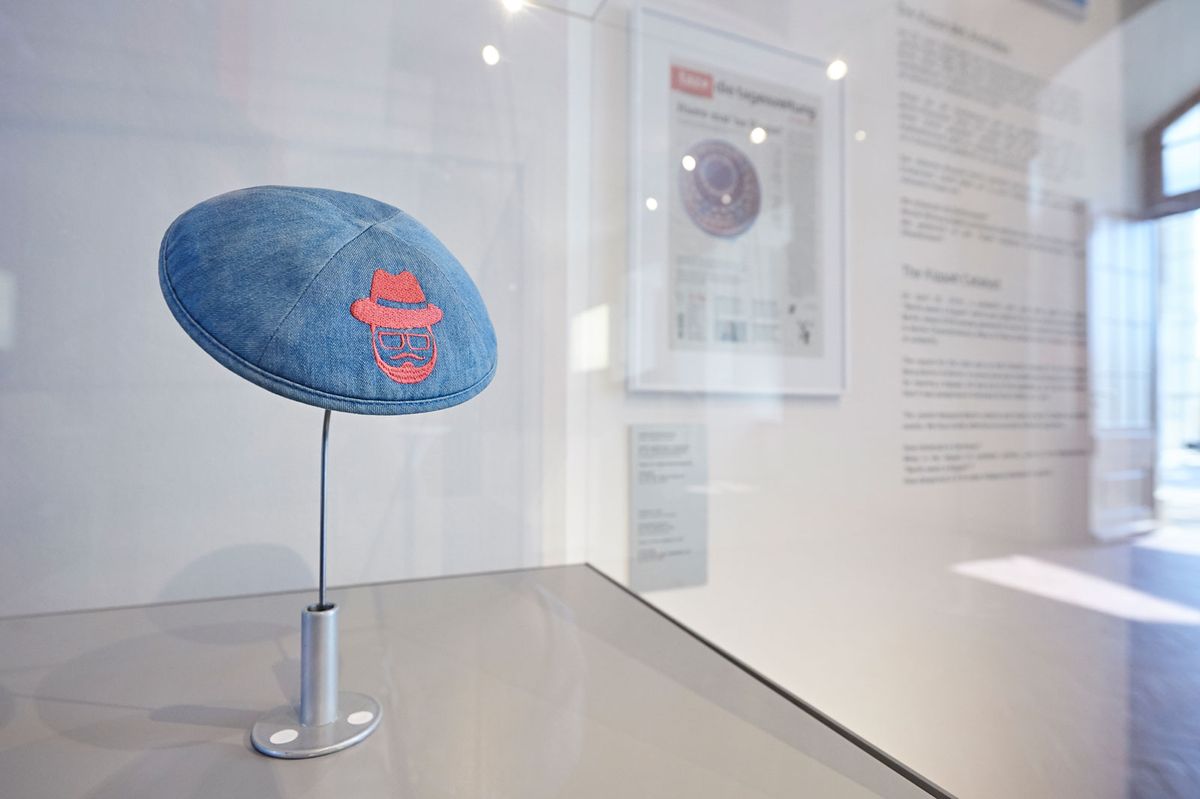The Jewish Museum in Berlin is displaying the kippa worn by a young man who was the victim of an anti-Semitic attack in April. The cap is on show in a newly installed “rapid response” vitrine in the foyer of the museum, intended to reflect topical events.
Twenty-one-year-old Adam Armoush was approached by a 19-year-old who shouted anti-Semitic insults in Arabic while lashing out at him with his belt in the Berlin district of Prenzlauer Berg on 18 April. The attacker also tried to hit Armoush with a bottle, but a woman intervened and Armoush escaped with light injuries.
An Arab who grew up in Israel, Armoush was given the kippa by Israeli friends and wore it because he did not believe it would put him at risk in Berlin. He managed to film the assault on his mobile phone. His attacker presented himself to police the following day and was arrested.
A week later, around 2,500 people took part in a demonstration called “Berlin wears the kippa” organised by the city’s Jewish Community. Photos and a banner from the demonstration are also featured in the Jewish Museum’s vitrine.
“Museums are spaces for discussion,” says Léontine Meijer-van Mensch, the museum’s programme director. “In future we have to react more quickly to current events that affect society. With the Rapid Response method, we want to invite visitors to take part in the dialogue.”
Visitors are invited to write down their thoughts on intolerance in notebooks at the museum, which will use the responses in a social media campaign. The Jewish Museum is following an example set by the Victoria and Albert Museum in London, which introduced “Rapid Response” collecting and exhibiting in 2014.
Rising anti-Semitism has become a matter of growing concern for the German authorities and the Jewish community. The Research and Information Office for Anti-Semitism in Berlin (RIAS) said the number of anti-Semitic incidents in Berlin reached 947 in 2017, an increase of 55 percent from the previous year.
Chancellor Angela Merkel condemned the Berlin attack in an April interview with a private Israeli television network. “We have a new phenomenon of refugees, among them people of Arab origin, who bring another form of anti-Semitism into the country, but sadly we also had anti-Semitism beforehand,” she said.


